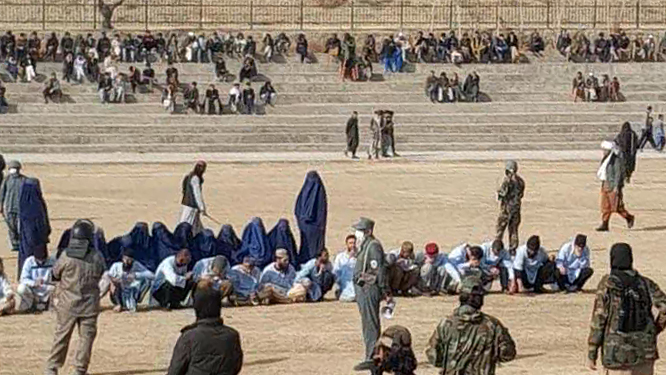KABUL: The Taliban have carried out public floggings on 72 individuals across 17 provinces in the past two months, reported Afghanistan media.
This information, gathered from statements issued by the Taliban-run Supreme Court between April 1 and May 25, highlights various offenses cited for the punishments, including robbery, moral misconduct, and fleeing from home.
Notably, provinces such as Khost, Paktika, Kandahar, Ghazni, Nimroz, Zabul, Jawzjan, Kabul, Faryab, and Badakhshan reported the highest incidence of flogging sentences during this period. The crimes mentioned by the Taliban-run Supreme Court ranged from robbery to moral corruption, with Khost province recording the most significant number of sentences. In April alone, at least 15 people faced public lashing for offenses like robbery, sodomy, and adultery.
The geographical distribution of these sentences indicates a prevalence in the southern and southeastern regions compared to the northern, central, and western provinces.
Criticism of the Taliban’s methods has been vocal, with individuals like Sabira Ahmadi from Kabul condemning the public floggings and likening sports fields to arenas for such punishments.
Mohammad Maqim from Balkh echoed these sentiments, highlighting the Taliban’s repression and their imposition of arbitrary rules. Human rights activists, including Maryam Marouf Arwin, have denounced the Taliban’s policies as contrary to international human rights standards, citing their arbitrary interpretations of Sharia law.
Analysts have also raised concerns about the Taliban’s judicial system, questioning the legitimacy and fairness of their rulings in criminal cases. The Taliban’s execution of five individuals in the past has drawn condemnation from human rights defenders.
This practice of public corporal punishment began in December 2022 following a decree by the Taliban leader. Since then, hundreds have faced similar punishments across various provinces. The Taliban’s response maintains that they ensure citizens’ rights within the framework of Sharia law, rejecting external interference in their governance.


